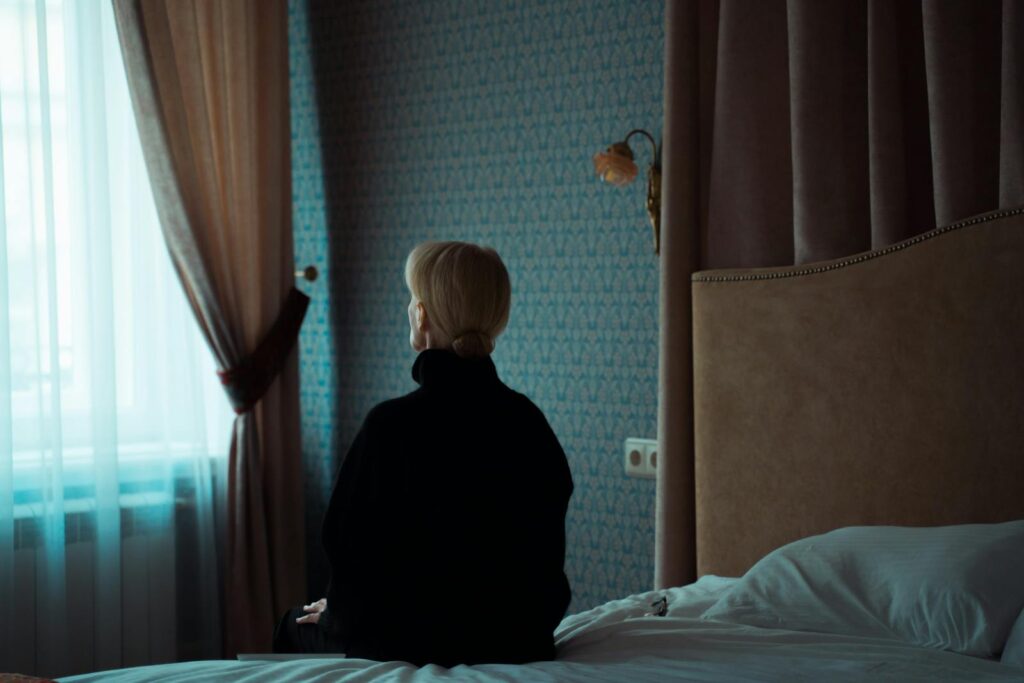Lifestyle
20 Signs You Grew Up in a Dysfunctional Household

Not all childhoods are picture-perfect, and sometimes, the habits you pick up growing up stay with you long after you leave home. If you often felt like the adult in the room or never quite felt safe being yourself, there’s a chance your home environment wasn’t as healthy as it should’ve been. Here are 20 signs that suggest you may have grown up in a dysfunctional household.
You Constantly Walk on Eggshells

You got used to choosing your words carefully because you never knew what would set someone off. Whether it was anger, guilt trips, or silent treatment, the wrong comment could ruin everything. So now, even around calm people, you feel nervous speaking up or being honest because deep down, you expect a reaction that never comes—but it still feels like it might.
You Apologize All the Time

Saying “sorry” is almost automatic, even when something isn’t your fault. Growing up, you probably got blamed a lot or were made to feel responsible for everyone’s moods. That stuck with you, and now it shows up in everyday moments, like bumping into someone or even expressing your opinion. It’s a habit born from always needing to keep the peace.
You Struggle to Trust Others

In a dysfunctional home, trust is usually broken early—by lies, empty promises, or emotional inconsistency. So now, you question people’s motives, overthink their words, or expect them to let you down eventually. Even when someone is kind and steady, a small part of you still holds back because, deep down, you’ve learned that getting too comfortable usually comes with a price.
You Fear Conflict Like It’s the Plague

Arguments at home weren’t just loud—they were terrifying or completely avoided. So now, any kind of disagreement makes your chest tighten or your heart race. You might shut down, freeze, or agree just to make it end. It’s not about being passive—it’s a leftover reflex from a home where conflict wasn’t handled with care, just control or chaos.
You’re Hyper-Independent

You learned early on that asking for help meant being let down or criticized. So, instead of leaning on anyone, you do everything yourself, even when it’s too much. People might admire your strength, but the truth is that it comes from a place of survival, not confidence. Deep down, relying on others feels risky, even when they’ve done nothing to earn your mistrust.
You’re Scared of Making Mistakes

Mistakes weren’t treated like normal growing pains. They were punishable offenses. Maybe you were yelled at, mocked, or made to feel like a failure over something small. That kind of pressure doesn’t just disappear. As an adult, you might freeze up, procrastinate, or over-prepare—not because you don’t know what you’re doing, but because you still hear those voices saying you’ll never be good enough.
You Find It Hard to Relax

In your house, calm didn’t last. The moment things felt peaceful, something bad usually followed. So now, even when life is going well, part of you stays on edge, waiting for the other shoe to drop. You might call it “realistic,” but the truth is, your nervous system still remembers the unpredictability and can’t fully settle down.
You Struggle to Name Your Feelings

You weren’t taught to explore emotions. You were told to ignore them, hide them, or get over them. So now, when you feel something big, it’s hard to even put it into words. You might feel numb or overwhelmed without knowing why. That’s not a personal failure—it’s what happens when no one helps you understand or express your feelings in a healthy way.
You’re Always in Survival Mode

Even when nothing’s wrong, you feel like you have to stay alert. That constant fight-or-flight mindset comes from living in a place where emotional or physical safety is never guaranteed. You adapted by staying ready, whether it was shouting, unpredictability, or neglect. The problem is, your mind and body still carry that tension, even years after leaving.
You Second-Guess Every Decision

Being told you were wrong or incapable—over and over—leaves a mark. So now, every decision feels like a test you might fail. You overthink, ask for too many opinions, or avoid choices altogether. It’s not that you can’t decide—it’s that growing up, your judgment was questioned so often that you stopped trusting your voice.
You Crave Validation but Struggle to Accept It

You didn’t hear “I’m proud of you” or “You did great” growing up, so now, praise feels unfamiliar or even uncomfortable. You want to feel seen and appreciated, but when someone gives you a compliment, it’s hard to believe they mean it. That’s because your inner critic speaks louder than any kind words you ever got in childhood.
You Take On Everyone Else’s Problems

You were likely the emotional caretaker in your home, trying to soothe chaos or protect younger siblings. That turned you into someone who always wants to help—even when it drains you. It’s hard to say no or set boundaries because being needed becomes your way of feeling worthy. But deep down, you’re tired of carrying everyone else’s weight.
You’re Either Too Guarded or Too Open

You learned that vulnerability could be used against you, so you either shut people out or overshare to gain control. There’s often no middle ground. You want connection, but you’re not sure how much is safe to give. It’s a tug-of-war between protecting yourself and craving real intimacy—and both patterns come from a home where trust and safety were never clear.
You Over-Apologize in Relationships

Whether you’re in a friendship or romantic relationship, you feel like you have to prove you’re not a burden constantly. So you say “sorry” even for existing too loudly. You fear being seen as difficult because, growing up, even normal emotions were too much for the people around you. Now, you shrink yourself without realizing it, hoping to be easier to love.
You Overthink Compliments

Someone says something nice, and you instantly wonder what they really mean. You might smile and say thanks, but inside, you’re picking it apart or assuming they were just being polite. That’s not because you’re ungrateful—it’s because, growing up, compliments were rare, fake, or followed by criticism. So now kindness feels confusing instead of comforting.
You Feel Responsible for Others’ Emotions

If someone’s upset, you blame yourself—even when you had nothing to do with it. That’s because you were conditioned to manage other people’s moods growing up. You kept the peace, fixed what was broken, and tried to make everyone happy. Now, you carry that same pressure into adulthood, constantly trying to fix things that were never yours to begin with.
You Struggle With Boundaries

No one taught you what healthy limits looked like—maybe your privacy wasn’t respected, or saying “no” was met with guilt or anger. So now, you either let people walk all over you or build walls so high no one gets in. Learning to set boundaries feels unnatural, even though it’s something you deeply crave. That confusion often points to a home that didn’t model respect or safety.
You Expect People to Leave

Even in healthy relationships, you’re always waiting for the goodbye. Maybe people in your past disappeared emotionally, physically, or both. That kind of loss leaves a scar that makes every bond feel temporary. You might push people away before they can hurt you or feel anxious the moment things get close. Deep down, part of you believes love always comes with loss.
You Over-Explain Yourself

You’re used to being misunderstood, so you try to over-clarify everything you say or do. It’s not just about being clear—it’s a defense mechanism. You don’t want to be blamed or judged because that’s what you experienced growing up. Even now, you might feel like you must justify your feelings just to be heard or accepted.
You Struggle to Feel Safe Being Yourself

In your household, being yourself probably wasn’t welcome. Maybe you had to hide your personality, downplay your interests, or pretend everything was fine. That teaches you to put on a mask—and wear it for years. Now, being authentic feels risky. You might not even know who you are under all those layers, but you’ve carried them so long they feel like home.

